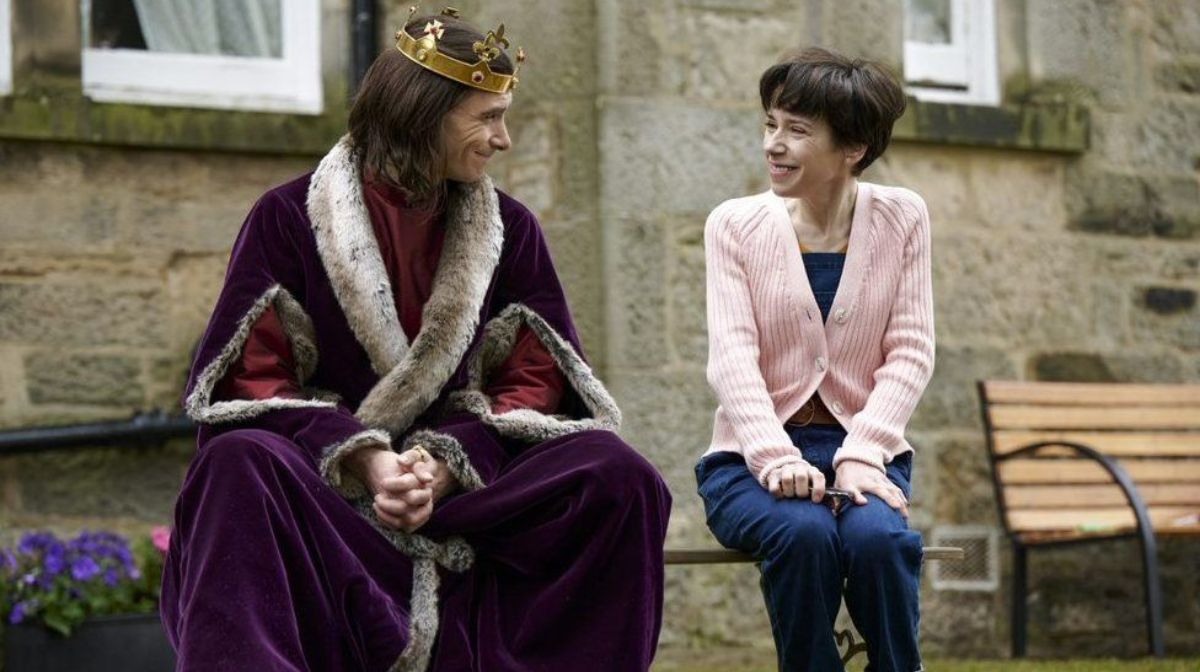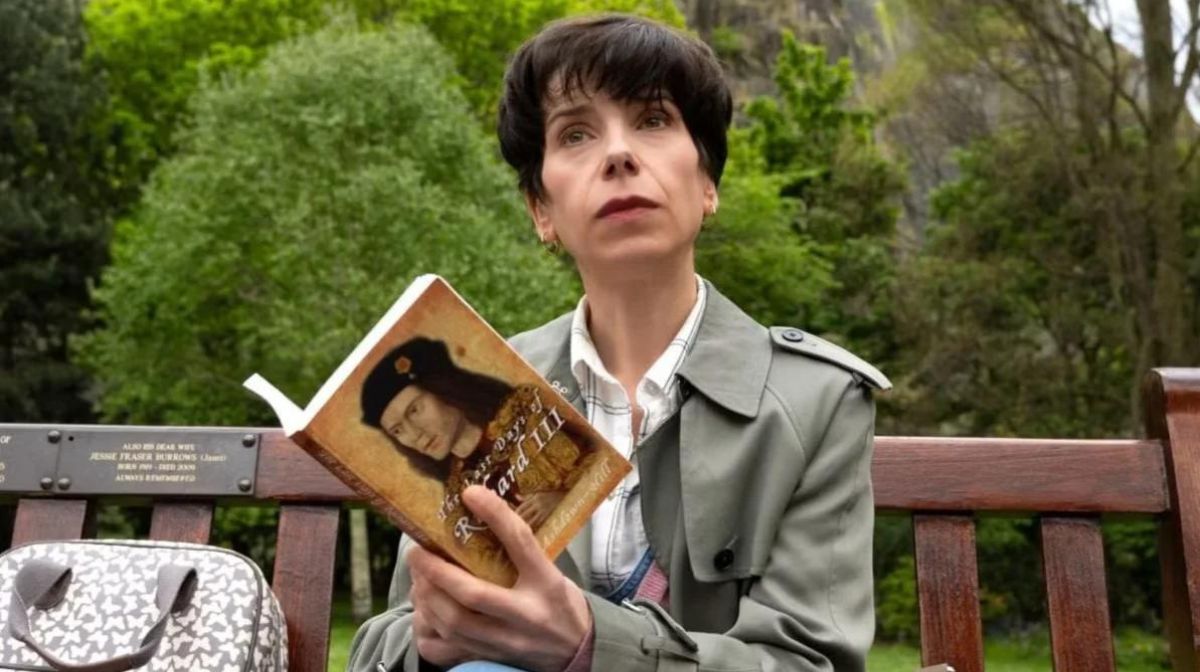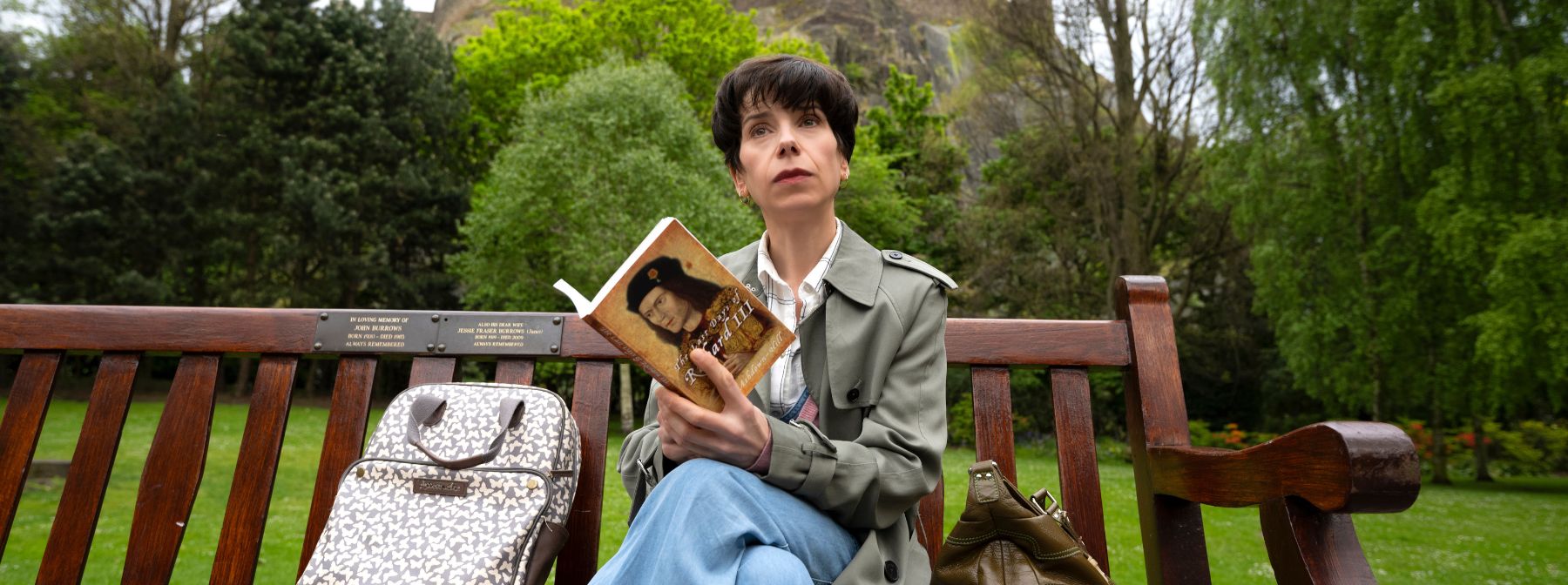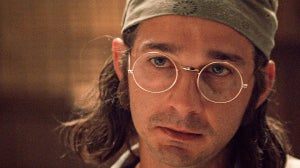
As a member of the Richard III Society, she met with others who rejected claims that the 15th century monarch was the tyrant depicted by Shakespeare. Philippa’s interest in the subject resulted in her spearheading a huge archaeological campaign to find the king’s remains.
It turns out, his skeleton was buried underneath the Leicester Social Services car park, lying there for hundreds of years.

Langley received an MBE for her efforts, but in official accounts her contributions to the discovery have been minimised – she may have started the search, but the University Of Leicester have largely received the credit for it.
This month, new film The Lost King aims to set the record straight, with co-screenwriter and star Steve Coogan spending close to a decade working with Philippa to bring her story to life.
As he explained to Zavvi: “It’s an extraordinary tale but you still need to do a lot of digging to find the greater truth, if you can pardon the pun. When I first met Philippa and she told me her personal story, that clinched it for me as a storyteller.
https://www.youtube.com/watch?v=Bgv6KHeAFeY
"We know the bare bones - again, sorry about the clumsy analogy – but we don’t really know anything about her. She had been almost obliterated or eviscerated from official accounts, so being able to put her back in the picture made it more attractive to me. It’s a fresh take on a story we all know from the headlines.”
Coogan said that this made developing the film alongside co-screenwriter Jeff Pope (with whom he had previously written Philomena) an unusual experience, as Langley was both the subject of the story, and their source of information when it came to Richard III.
“We wouldn’t just be asking her what were you doing that day, or what did you say to that person, when writing a scene – we needed her to walk us through the historical facts too. We got to use her as both a fountain of knowledge and a narrative inspiration, you don’t get better value for money than that!”

For Langley, now seeing herself on the big screen as played by the great Sally Hawkins – in a performance several critics have called one of her career best, no less – proved to be completely “mind boggling”. As she explained to Zavvi, the film is as close to her truth as its possible to be, without her becoming too deeply intertwined with their creative process.
“It was an eight-year journey for them to make the film, and they wanted to do research beyond just reading my books. I wasn’t involved with the screenwriting, but I did become their font of historical knowledge, and was there to help them make sure they represented the events as accurately as they happened. I was helping them get eyewitness testimonies throughout!”
Back in 2013, Langley wrote her own screenplay about Richard III, which aimed to correct the historical narrative set in stone by Shakespeare’s play. Richard Armitage was on board to play the king – but that project quickly fell into development hell, never to be made. In this film, the character of Langley repeatedly sees visions of Richard III (here played by Harry Lloyd), which Coogan and Pope use as a device in order to tell the story of the monarch alongside that of their protagonist.

Langley added: “The thing I love about the film is that they use Shakespeare’s interpretation of Richard the Third as their starting point, before slowly unveiling the historical figure. When they first told me they were actually going to include him in the story, it freaked me out a bit, but once they explained that it would be a powerful way of understanding my journey through his, it made perfect sense. I couldn’t believe it worked as well as it did!”
Coogan’s fascination with Richard III as a historical figure is intriguing in no small part because he’s a Republican who wants to see the monarchy replaced with an elected head of state. But as he stressed, this isn’t a hindrance on telling a sympathetic story centering one of the most controversial monarchs of all.
“I’m a Republican, but not a militant one”, he continued. “You can admire individuals without supporting their institution; I admire Queen Elizabeth the Second, and now in many ways, I admire Richard the Third.

"Kings and Queens are fascinating people, but I also think that, if this was just a story about Richard the Third, I’m not sure it would be as interesting. To me, the juxtaposition between a king who was harshly judged and Philippa Langley, who didn’t get the credit she deserved for her work, made this delicious to me. Yes, I love the extraordinary nature of the monarchy – but I also love the ordinary”.
Veteran director Stephen Frears, reuniting with Coogan after 2013’s Philomena (which bagged the writer/actor Oscar nominations for Best Picture and Best Adapted Screenplay), is similarly a self-identitifed Republican – despite making several films about the monarchy, ranging from 2006’s The Queen, to 2017’s Victoria and Abdul. As he explained to Zavvi, before reading the screenplay, he only knew the “wrong things” about the monarch, but was fascinated to hear this new side to the well-established story.
“The monarchy has fascinated me ever since my education, and growing up in Britain when I did, that was fully built into you. I could tell you all the kings and queens going back for centuries – they fully dominated my childhood, regardless of whether or not I disagree with their existence now! And you don’t have to support the monarchy to see that the Queen was an extraordinary woman, after all”.

Asked if he could see the dramatic potential of recent weeks, as the second Elizabethan era came to an end, Frears laughed and said simply: “Not at all. If you want drama right now, look at the government!”
The director is more bullish when it comes to addressing the big controversy surrounding the film; the response from Leicester University, who believe they’ve been made to look like the “villains” in Philippa’s story. Coogan has already been vocal in his response to this criticism, but Frears goes one step further.
“I mean, as far as I can tell, she wasn’t treated very well by the University. They’re a corporation, and when involved with a story like this, of course they’d want to blow their own trumpet – when they had the press conference to announce the findings, she was the 13th person to speak, after the press had left!

"It’s on the record that the first few weeks of the search were paid via her crowd funding, which is when they found Richard the Third, they just paid for an extra week after that. It’s not remotely the way the university describes it”.
At 82, Frears has no intention of slowing down soon, although he has no projects on the horizon. Twenty years ago, he was attached to direct a Bond spin-off focused on Halle Berry’s Jinx, which never entered production – could his next film finally be his 007 movie, seeing as the franchise is about to be rebooted, with a rumoured equal focus on a new female agent?
“Of course not – it wouldn’t have Halle Berry in it!”
The Lost King releases in UK cinemas on 7th October.Subscribe to The Lowdown to get each edition sent straight to your inbox for free.
For all things pop culture, follow us on Facebook, Instagram, Twitter, and TikTok.









